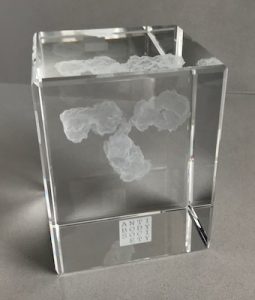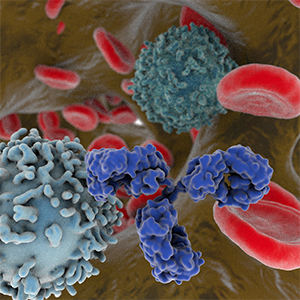 Attention Student and Post-doc Members!
Attention Student and Post-doc Members!
The Antibody Engineering & Therapeutics Europe Poster Competition is now open.
This virtual meeting will be held June 8-10, 2021.
To recognize the research activities of promising student and postdoctoral members, The Antibody Society is sponsoring a poster competition for these members in which two winners will be selected to receive:
- Free registration to attend this virtual conference;
- An opportunity to present a virtual poster during the conference;
- A Digital Badge as a Winner of the Poster Competition; and
- The Antibody Society’s Award of Excellence (shown above).
In order to be considered for this poster competition, you must be a student or postdoctoral fellow member of The Antibody Society and your poster abstract must be submitted using the poster submission form. Please be sure to check the box on the poster submission form indicating that you want your abstract to be considered for the poster competition.
The Poster submission deadline is April 30, 2021.
Winners will be notified by May 7, 2021.
Submit your poster here!
Poster abstracts may be submitted and accepted for presentation at the conference after April 30th, but any submissions received after April 30 will not be considered for the poster competition.


 The Friedrich Alexander University in Erlangen (Germany) is looking for PIs working in the AIRR-seq space to take on intern students. The internship should be a short scientific project spanning 8 weeks to 6 months. The application process starts in March and the internship is expected to start in October to December. You can read more information about it at
The Friedrich Alexander University in Erlangen (Germany) is looking for PIs working in the AIRR-seq space to take on intern students. The internship should be a short scientific project spanning 8 weeks to 6 months. The application process starts in March and the internship is expected to start in October to December. You can read more information about it at 
